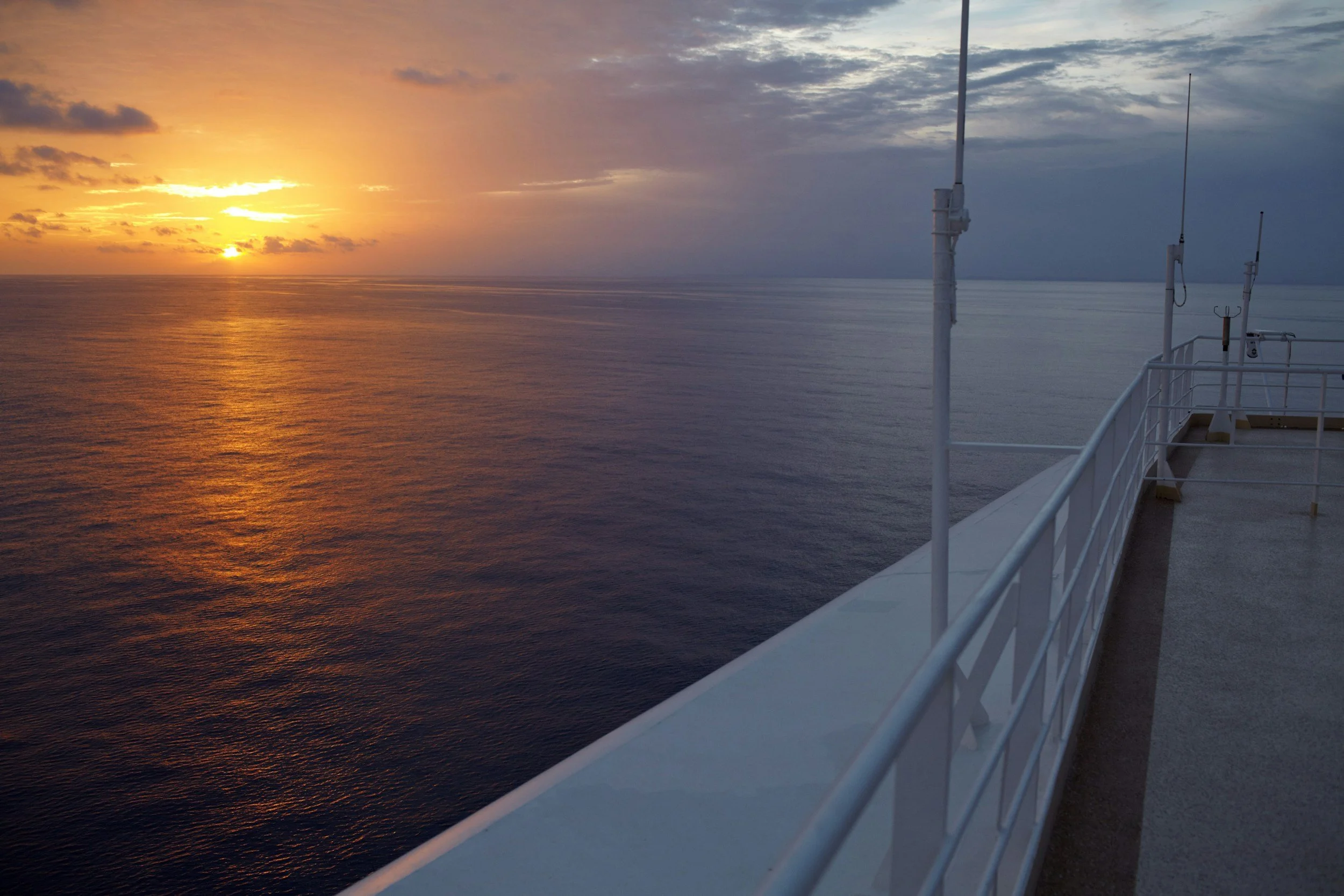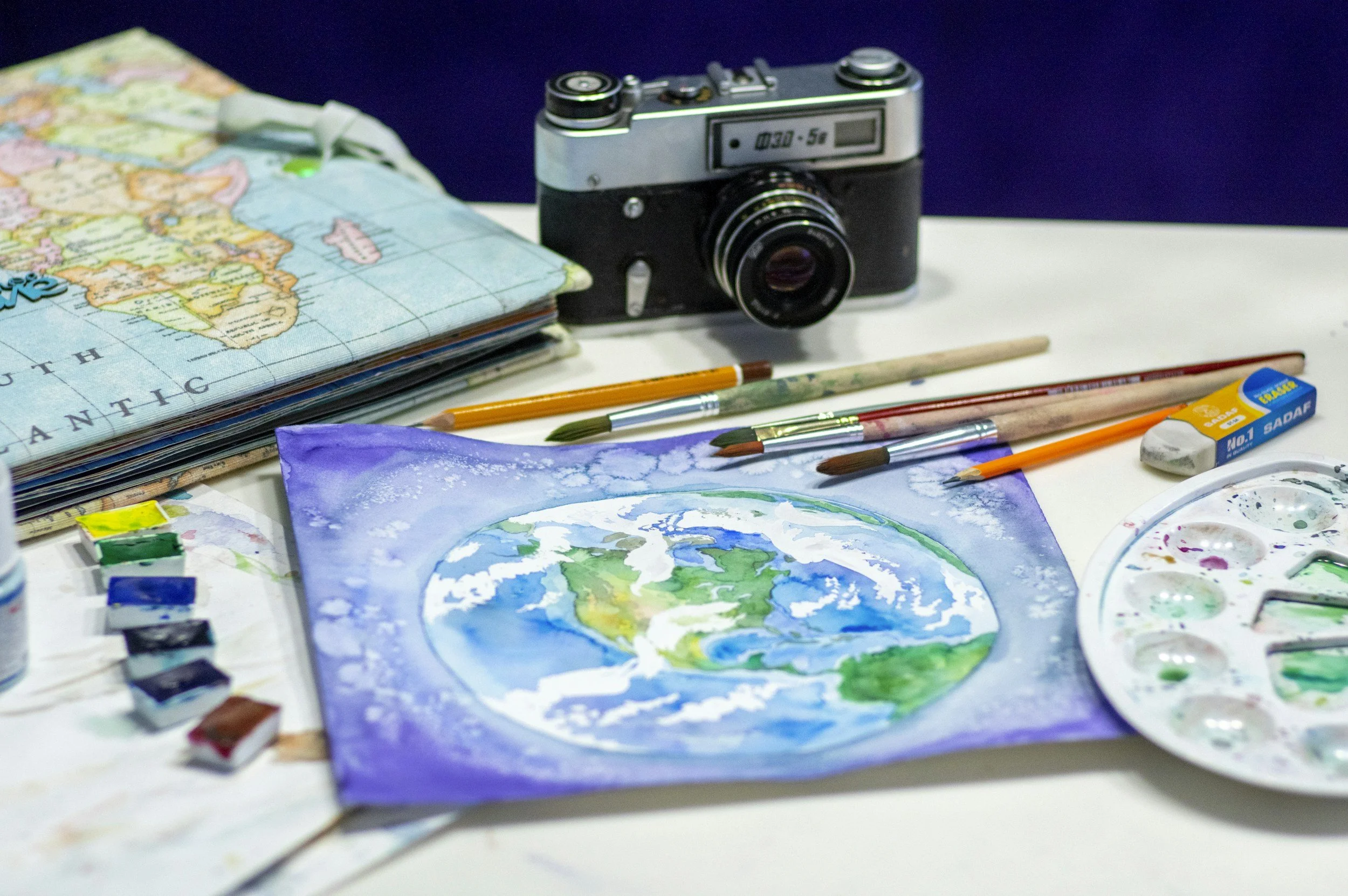Cruise Ship Life: 6 Lessons I’ve Learnt about Balance from Living and Working at Sea
The crew-to-guest ratio on most cruise ships is about 1 to 2. For every two guests sipping coffee, attending shows, or relaxing on deck, there’s usually one crew member behind the scenes – working, assisting, cleaning, repairing, or standing by in case something goes wrong.
But numbers don’t tell you how it feels. The long hours. The shifting time zones. The people you live and work with every day. The job demands a lot – physically, mentally, emotionally. And somehow, through all that, you have to find your own rhythm.
I didn’t fully understand what I was walking into during my first contract. I just knew I wanted to travel and earn, and this job would let me do both. What I didn’t expect was how much I’d need to learn about balance.
Not just the kind of balance it takes to walk down a crew corridor in rough seas (haha). But the kind that keeps you steady through difficult days, uncertain plans, and tight living spaces.
Here’s what the sea has taught me – about work, about people, and about the kind of steadiness that’s harder to find on land.
What the Sea Has Taught Me about Finding Balance Onboard
Working behind the scenes taught me to see the whole system, not just my role
Cruise life looks seamless: meals appear, beds are made, pools stay clean, shows go on. But that illusion only exists because hundreds of people are working behind the scenes – around the clock, across departments that rarely interact.
The ship isn’t just a hotel. It’s a city, a restaurant chain, and a technical operation all in one.
Deck: The team that navigates the ship, maintains its structure, and handles docking, anchoring, and safety protocols. You might only see them during drills or in port, but they’re always working in the background.
Engine: The engineers and technical crew keep the ship running – from propulsion to power, air-conditioning to plumbing. Guests never go below deck, but without this team, nothing would function.
Hotel and Housekeeping: This is the heartbeat of the guest experience. Cabin stewards, laundry teams, cleaners – they work behind the smiles, making everything feel effortless.
Food and Beverage: There are entire kitchens you never see – prepping for thousands of meals a day. There are provisioning teams, storage teams, dishwashing teams. If a guest ever wonders how they’re still eating fresh fruit on day 10, this is why.
Entertainment and Recreation: Dancers, musicians, youth staff, lighting and sound technicians. They don’t just perform; they rehearse, reset, and manage equipment most people don’t notice.
Security and Medical: Often overlooked, but always essential. There’s a clinic. There’s surveillance. There are safety checks and quiet interventions happening daily.
Most crew never work in just one role. You adapt, cover extra shifts, and fill in where needed.
The lesson: I used to think my job was just what was listed in the contract. But over time, I learnt that balance meant knowing when to step up, when to rely on others, and how to play your part in something much bigger than you.
I felt most alone in the middle of the crowd
It’s easy to imagine that working on a cruise ship means you’re always surrounded – by guests, by colleagues, by sound and activity. That part is true. But being surrounded isn’t the same as feeling connected.
There’s a kind of loneliness that’s hard to describe. Often unnoticed by others. You’re working twelve-hour days, living in a shared cabin, walking through crowded corridors, and still feeling like you’re miles away from yourself.
Some days, it’s emotional overstimulation. Too many greetings, too much smiling, too many conversations that never go beyond surface level. You’re never alone, and yet no one seems to see you.
Other times, it’s professional isolation. You’re part of the crew, but not part of decisions. You carry out tasks, follow orders, do your job well; but rarely get a say in how things are done. It’s not personal. But it wears on you.
Then there’s the lack of space – physical space, mental space, emotional space. Nowhere to go that’s fully yours. Even alone time has to be negotiated: bunkmates, corridor noise, schedules that never match.
The lesson: It taught me to balance external noise with internal quiet. To seek connection where I could, and create space for myself, even when I had no space at all.
The strongest friendships don’t always come with goodbyes
you know how when you're at a place
you used to visit or stay
and you remember
the conversations you had, verbal or written,
with somebody you used to know
it's as if you're reliving the bittersweet memory
except that it's more bitter than sweet
because it's somebody you used to know
Some friendships onboard come out of nowhere. You’re assigned a cabinmate, or thrown into a team, and within days – sometimes hours – you’re sharing life in a way that would take years on land.
You don’t always have much in common. You’re from different countries, backgrounds, and beliefs. But you're living shoulder to shoulder. You wake each other up. Share meal breaks. Notice when the other one’s too tired to speak.
What surprises me most isn’t how quickly these bonds form. It’s how deeply they affect me after they’re gone.
These aren’t perfect friendships. People argue. You misread each other. Someone gets promoted. Someone transfers ships. You say you’ll keep in touch – and sometimes you do, but most of the time you don’t.
The last time you see someone is rarely a proper goodbye. More often, you're on duty while they're disembarking the ship.
The lesson: I learnt to appreciate the connections while they lasted, without holding too tightly. Balance meant caring, but also letting go when it was time.
I had to stop glorifying exhaustion to protect my energy
Balancing work and rest at sea takes more effort than it should. Some days you’re genuinely overworked – early mornings, late nights, back-to-back duties. Split shifts stretch the day longer than it seems on paper. Guest-facing roles often mean showing up early and staying late.
But not all the sleep loss is from duty. Sometimes it’s your own choice – staying late at the crew bar, binging shows during rare downtime, not wanting the only free hours to be spent sleeping.
Eventually, you learn how to manage it. You nap when you can. You get better at recognising when your body needs rest, and when your mind just wants distraction.
The lesson: I stopped measuring rest by hours and started seeing it as a boundary. Balance wasn’t about perfect sleep hygiene. It was about giving my body what it needed to keep going without burning out.
The sea reminded me I’m not in control – and that’s okay
It doesn’t matter how tight the schedule is or how many ports are lined up. If the sea says no, it’s a no.
Weather delays. High swells. Sudden storms. You learn quickly that plans don’t mean much if conditions shift. The ocean doesn’t care about schedules or itineraries. It moves on its own terms.
At first, it was frustrating. It throws off routines. Makes people irritable. Changes everything last-minute.
But it taught me something I didn’t expect.
The lesson: You can plan everything down to the minute, but you’re never really in control. Learning to balance preparation with flexibility is what made life at sea manageable, and sometimes, even peaceful.
Living without choice made the small freedoms matter
Working at sea makes you realise how much you’ve taken for granted on land. Things like walking outside without a time limit, getting your own space, or choosing what and when to eat.
You learn to savour a proper day off too – nothing beats shore leave for a taste of real freedom.
You share nearly everything onboard – cabins, meal times, schedules. Even small things like laundry or charging your phone can feel like a shared process, not a personal one.
The lesson: Going without reminded me to balance routine with appreciation. It made me more grateful – not just for rest or freedom, but for the ability to choose what my day looks like at all.
What Helps You Last: Discipline, Teamwork, Resilience, Humility
These aren’t standalone traits. On ships, they’re what hold everything together, especially on those tough days or when you’re heading toward burnout.
Discipline helps you stay focused when you're tired, short on time, or pulled in five directions at once. It’s not just about rules; it’s about showing up, even when you don’t feel like it.
Teamwork depends on that discipline. If you can’t manage your own responsibilities, others can’t rely on you. Whether it’s a cabinmate covering for you or a supervisor stepping in when things get hectic, you learn to rely on people. And that’s why teamwork also needs something else: humility.
Humility is what makes working and living in close quarters possible. It often grows naturally in this kind of environment. You realise how little control you have over the sea, over other people, or even your own schedule. You’re not above the job. No one is. Humility means recognising your limits, apologising when needed, and being open to learning.
Resilience ties them all together. It isn’t always about pushing harder. Sometimes it means recovering from setbacks, adjusting your expectations, or asking for help when you need it. You don’t build it alone. It’s shaped by the people around you, and by how you treat yourself in difficult moments.
These qualities work best together, not on their own. The longer you're at sea, the more you realise how much they depend on one another, and how essential they are for making this life sustainable.
TL;DR
Working on a ship means being part of that 1 in 2 – the one behind the scenes, making things run. It’s easy to disappear into the role, to let the work define you. But over time, you start to see what this life has given you, too.
A kind of balance that doesn’t come from a schedule or a training manual, but from living it – day after day, sailing through it, adapting as you go. Life at sea teaches you to live with contradiction: structure and chaos; exhaustion and pride; connection and loneliness.
I’m still learning how to hold onto that balance, but it’s something I want to keep nurturing, no matter where I go next.














